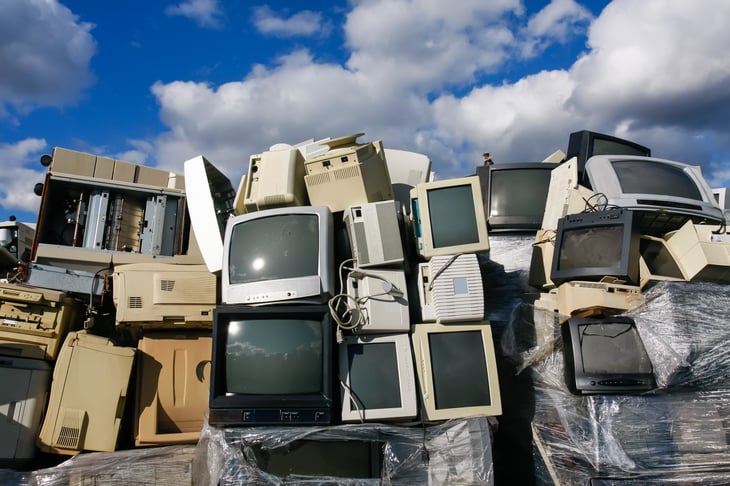
Editor’s Note: This story originally appeared on FlexJobs.com.
Do you have a box full of tangled cables and cords? Or do you keep a stack of old laptops in your closet?
As technology evolves rapidly, we frequently upgrade our devices to keep up with the demands of our fast-paced world. All of this can lead to a pile of old electronics we no longer use in our closets or attics.
You might be tempted to simply take these electronics to your local dump, but a better alternative is to recycle your old electronics.
Electronic devices are the largest source of pollution for our planet.
In fact, Elizabeth Chamberlain, director of sustainability at iFixit, says, “Globally, we’re generating e-waste that weighs as much as 100 blue whales a day, and 80% to 81% of that is not going to be recycled.”
In addition to being better for our planet, recycling your office tech could help someone who desperately needs a computer but can’t afford one (after all, a new laptop isn’t cheap).
How to Recycle Your Home Office Tech
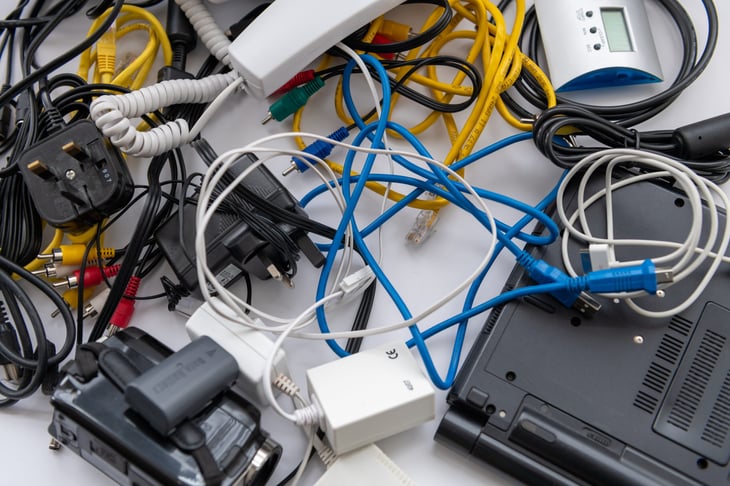
Rather than toss old tech into a landfill, here’s how you can give it new life (and preserve our planet).
1. Do a ZIP Code Search to Find Electronics Recycling Near You

Go to Greener Gadgets to find out where you can recycle electronic products. Simply enter your ZIP code, and you’ll find a list of the nearest organizations that will accept your unwanted electronics.
Another source for finding e-recycling organizations, based on the region in which you live, can be found at the U.S. Environmental Protection Agency website.
2. Contact the Manufacturer
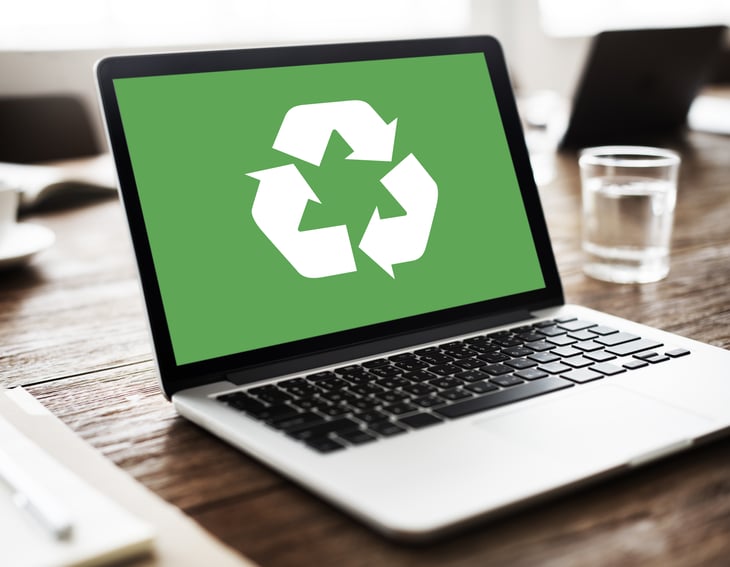
Many manufacturers participate in the Sustainable Materials Management Electronics Challenge, and you can find participating retailers, including where to donate or recycle e-waste, on its website.
If you have old cellphones to recycle, contact your cellphone provider for more information on recycling those products.
3. Donate Electronics to a Nonprofit
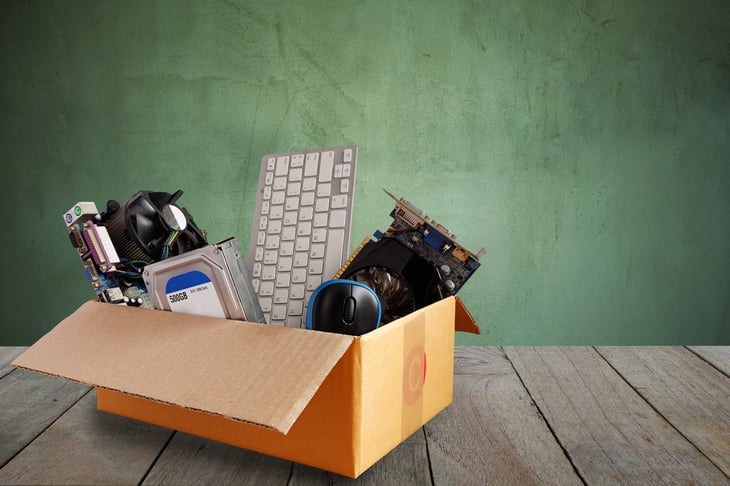
If your electronics are in good working condition, consider passing them on to a nonprofit organization that might reap the benefits of using them.
For example, your old clunky laptop could help kids continue their education when they have to learn remotely. Or, it could help provide computers to schools that don’t have money for new ones in their limited budgets.
To find a charity that will take your old office tech, visit Computers with Causes to locate a local nonprofit organization.
4. Choose Smarter Upgrades

When upgrading your electronics, be sure to look for products that are ENERGY STAR-certified. These products are approved for energy efficiency. Many popular brands, such as Dell, HP, and Lenovo, are ENERGY STAR-certified.
To find ENERGY STAR-certified tech, check large retailers (like Best Buy or Amazon) that let you filter by “ENERGY STAR” products when searching for new laptops or other office gadgets.
You can also find a list of ENERGY STAR-approved products to search for more eco-friendly upgrades.
5. Head to Your Local Retailer

If there isn’t a nonprofit organization in your local area, consider checking with major retailers about recycling options.
For example, Staples isn’t just for buying new printing paper — they’ll also take your old tech. Staples stores have bins where you can drop off old technology to recycle at no cost to you.
Items accepted for free recycling include laptops, mobile phones, cables, and modems.
Don’t live near a Staples store? Don’t worry. There are many other stores that will recycle your old office tech.
Recycle Electronics to Help Others and the Planet
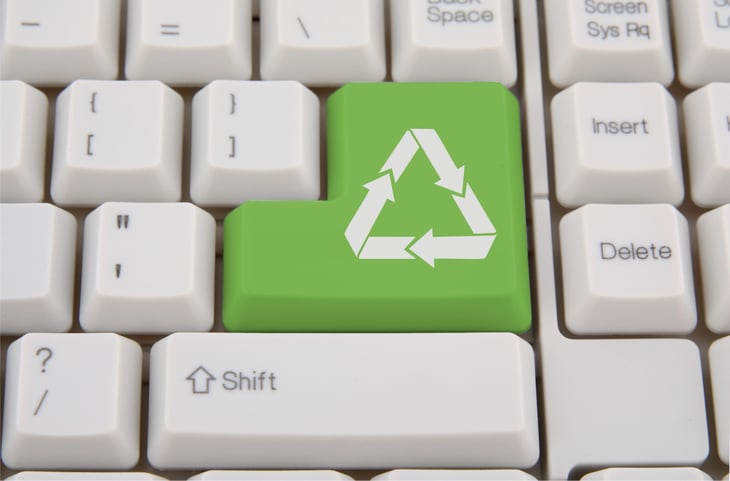
Unlike food products or products made from organic materials, such as wood, the materials used in manufacturing electronics can take thousands of years to decompose.
As the largest source of pollution, the consequences can be severe for our planet and our health. By recycling your tech, you can protect the planet and help someone get the tech they need to succeed.
